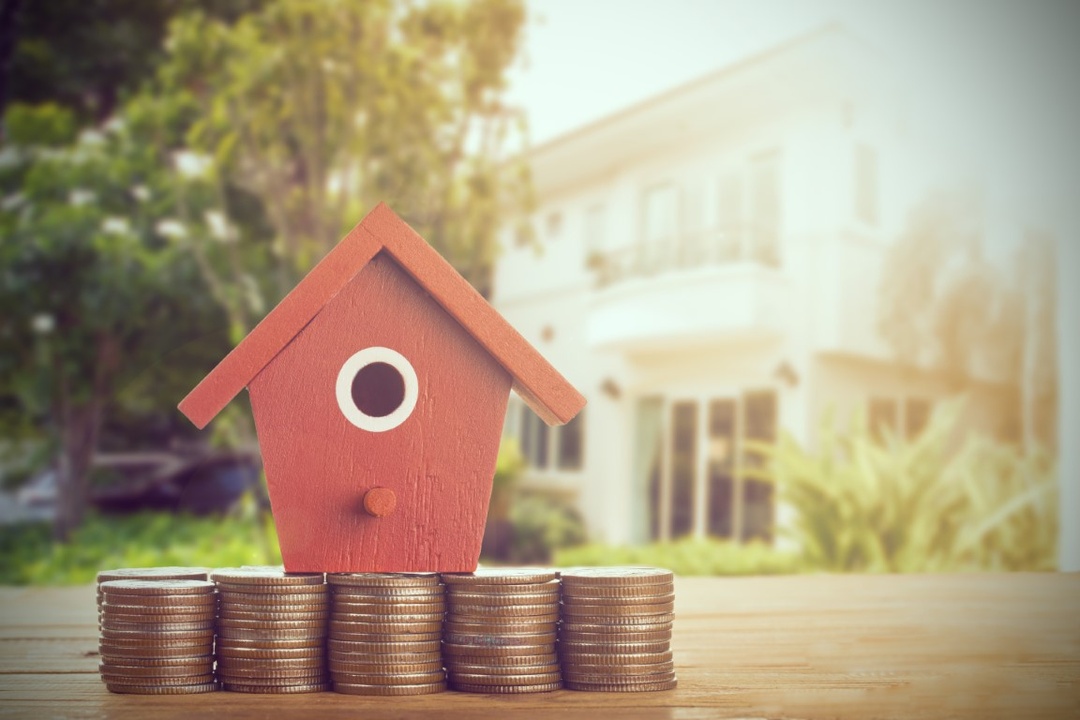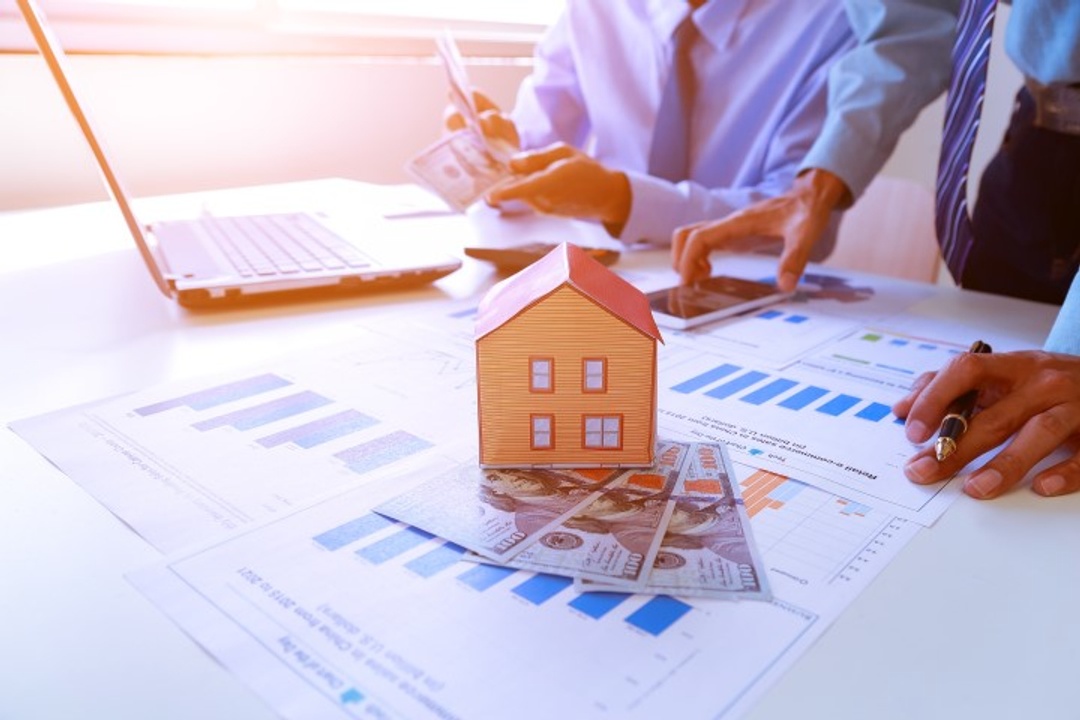
If you're looking for a great place to live, look no farther than Austin, Texas. It's easy to see why Austin is one of the most desired locations to live in the US, thanks to its booming economy, thriving employment market, and countless recreational possibilities.
The city's popularity has resulted in a competitive housing market, so it's critical to be prepared before embarking on a home-buying journey in the area.
In this guide, we'll give you all the information you need to make an informed purchasing decision. We'll start by discussing the current state of the Austin housing market, then move on to some tips for finding the perfect property.
Whether you're a first-time buyer or an experienced homeowner, this guide has something for you! Here are some tips you should know if you’re considering buying a home in the competitive Austin housing market.
Is It A Good Time To Buy A House In Austin?
When considering a house purchase in Austin, Texas, it's natural to question if the optimal buying period has already passed you by. Whether you're a first-time house buyer or have bought several homes in your lifetime, you don't want to overspend and end up with a mortgage for more than the property is worth.
While it's undoubtedly a difficult time to try to buy a home — you should prepare to make numerous offers before one is accepted — experts say there's no indication that prices will fall anytime soon. It is currently a seller's market, which implies that buyer demand exceeds the existing supply of properties for sale. Home prices in Austin are rising and becoming more appealing to sellers at this time instead of buyers.
Furthermore, a lack of supply and increased demand for homes will likely drive prices up through 2023. Austin's enormous population growth over the last decade has had a significant impact on the city's real estate market. The median price for residential properties in Austin has risen by a stunning 16 percent in the last year, reaching an all-time high.
Why Is the Austin Market So Competitive Right Now?
Austin's housing market is thriving, but it is also quite competitive. The market reflects what is going on in the country's other main cities. While activity appears to have slowed in recent months, Austin's residential real estate market remains exceptionally hot, with prices rising considerably over the last year.
Despite nationwide inflation and rising interest rates, Austin real estate remains a seller's market. The primary reason is high in-migration and a fast improving local economy. Austin's population is growing by 146 people every day, according to Census Bureau forecasts for 2021.
This type of growth places immediate and significant demands on infrastructure, particularly housing. According to the most recent statistics, the Austin housing market is continuing its record-breaking pace, with home values setting records across the Austin-Round Rock MSA.
Another factor is that Austin's quickly expanding economic activity is attracting more individuals to the city, raising housing demand. The influx of newcomers, paired with rapid population expansion and previously low mortgage interest rates, has transformed Austin and the surrounding area into a seller's market.
The average home in the Austin-Round Rock metro area is valued $599K as of December 2022. This is a seasonally adjusted figure for properties in the intermediate price range. Home values in the Austin-Round Rock Metro area have also risen by 32.4 percent in the last year and are anticipated to climb by 10.7 percent by May 2023.

Tips For Buying A Home In Austin, Texas
It's no secret that Austin is currently one of the hottest home markets in the country. However, with more people and businesses moving here every day and properties in increasingly short supply, the process of buying a home in the Austin area can be fraught with uncertainty for prospective purchasers.
To help you navigate your way through the Austin market, we caught up with experienced agent Simi Gilani. As a 20+ year Austin resident, she has seen the Austin skyline change before eyes, and knows what it takes to win in this super-hot market. Below, we'll share her most helpful tips!
1. Figure Out What You Want
It's one thing to declare your desire to purchase a home. But do you know what kind of house you are looking for? Do you want a single-family home on a large lot? Do you want to live in a pleasant suburban community where your children can play in the cul-de-sac? Or, would you rather live in a high-rise condo in the center of downtown Austin?
Austin is a diversified city with many distinct pockets and communities. If you cast too wide a net, the procedure will overwhelm you. It's a good idea to start with a clear idea of what you're searching for so you can zero in on specific regions and property types.

2. Choose a Local Real Estate Agent
Every buyer should use a Realtor. Real estate agents assist home buyers in navigating the housing market, including being pre-approved for financing, identifying potential concerns in each home, understanding all of the paperwork, and locating a brokerage firm to conduct your closing— all for free. They make money by taking a commission on the home you buy, which they receive from the seller.
"Find a more experienced real estate agent who is enthusiastic about their business," that is crucial. Someone who will truly listen to and guide your requirements. "Make sure there is no ego involved since most of the time things will work out for the best when buyers and seller's agents talk freely and with respect," says Simi Gilani, Realtor, Better Homes and Gardens Real Estate HomeCity.
To locate an experienced agent, contact friends and family for recommendations or search the Austin Board of Realtors directory. You can also deal with a reputable real estate agency, like BHGRE HomeCity.
3. Understand your Mortgage Options
If you don’t have enough personal funds to finance your purchase, you should begin researching mortgage possibilities as soon as possible. By shopping around for a mortgage loan from 3-5 lenders, you will be able to compare rates and select the one that best meets your needs.
More significantly, before approaching a lender, you should ask yourself the following questions:
* What is your whole budget?
* How much money have you saved for a down payment?
* Do you want a long-term loan or one that can be paid off quickly?
* Are you (or have you ever been) a member of the military?
Have your answers ready because there are many loan programs available, and each can be customized to meet your needs.
* FHA loans need as little as a 3.5 percent down payment, which can be gifted.
* VA loans do not require a downpayment and do not require mortgage insurance.
A 15-year loan term allows you to pay off your loan faster, saving you hundreds of thousands of dollars in the long run.

4. Get Pre-Approved
Pre-approval for a mortgage will offer you a much more precise picture of your budget, but remember that pre-approval and pre-qualification are not the same.
For pre-qualification, your lender will simply ask you a few questions about your financial situation and present you with a preliminary estimate of how much you might qualify for, though this is far from certain.
The pre-approval procedure is a little more lengthy, but it offers you a fairly accurate picture of how much you can spend. Several key documents must be provided during this process in order for a lender to establish how much you are qualified for. Documents required for pre-approval may include, but are not limited to:
* Pay stubs
* W-2 forms for the previous two years
* Your two most recent federal tax returns
* Bank statements over the last two months
* Your credit report
5. Check & Fix Your Credit
Did you know that one of the most essential aspects of purchasing a property is your credit score? Knowing your credit score will assist you in determining your eligibility and the type of interest rate you may expect on a mortgage.
And when looking to buy a home in Texas, Austin is also the only city in Texas with a median credit score higher than 700. So, if you are looking to own a piece of Austin, it is important that you have a stellar credit score. If your credit score falls below the necessary level, you may face excessive interest rates or be turned down.
As you begin your home-buying quest, check your credit score and correct any inaccuracies, or give yourself time to improve it. "I normally tell my customers that if their credit isn't in excellent shape, they should fix it before buying a house," Simi Gilani reiterates.

6. Save for a Down Payment
Have you been putting money aside for a down payment? In general, when trying to buy a house in Austin, it's preferable to put down at least 10% and up to 20% if you truly want to stand a better chance.
It comes as no surprise as the Austin housing market is pushing home buyers to put down more money. Because of growing property prices, appraisers are wary of current valuations, which is putting buyers in the unusual position of having to pay more money to meet what appraisers estimate a home is worth.
When saving for a down payment, the more you can put down, the better the conditions of your mortgage are likely to be and the less interest you'll end up paying, saving you a lot of money in the long run. However, if you are unable to put down the full 20%, you may be able to qualify for a range of lending options or opt for down payment assistance programs.
7. Check Out Home Buyer Assistance Programs
While the majority of homes in Austin are not cheap, there are several homebuyer assistance programs that can make home ownership more achievable. If you’re a first-time homebuyer in Texas, the Texas Department of Housing and Community Affairs and other organizations offer several programs to help you buy a home.
One of the major home buyer assistance programs in Austin is the Austin Down Payment Assistance Program. With the Austin Down Payment Assistance Program, eligible applicants can receive up to $40,000 in assistance funds to help cover their down payment, closing costs, and prepaid expenses associated with buying a home.
You can also take advantage of the Homeownership Across Texas program which offers grants of around five percent of the loan amount with VA, FHA, or USDA financed loans. Borrowers with conventional loans receive three percent grants. Grants do not come with any repayment or recapture period, nor is there a first-time homebuyer requirement.
Other loan-styled assistance programs include the My First Texas Home program, a 30-year mortgage with a low-interest rate and up to five percent in interest-free down payment assistance. Reach out to a local lender or real estate agent for guidance on qualifying for a home buyer assistance program in Austin.

8. Consider Living In A Nearby Suburb
When looking for a home in Austin, it can save money if you'll consider purchasing in the suburbs rather than the city.
While many destinations are easily accessible and work opportunities are more plentiful in cities, buying a home in Austin's suburbs has its advantages. Suburbs tend to have lower living and housing costs, better security, and less congestion than the metropolis. They also provide better access to attraction sites outside of the city, such as Lake Austin and Lake Travis Park.
And with the rising house prices and more competition in Austin's urban districts, thousands of homebuyers are exploring buying in the suburbs as an option. Simi continues, "If they can afford to live in the central Austin region, that's fantastic, but nothing is accessible under a particular price range right now. If not, they can relocate to the suburbs.
Austin is surrounded by beautiful neighborhoods such as Cedar Park, Hutto, Georgetown, and Leander. People used to conceive of these regions as suburbs, but not anymore because they are now essentially a part of Austin. So, the surrounding places are unquestionably a fantastic alternative in terms of affordability!"
9. Visit Neighborhoods Ahead of Time
Before purchasing a home in Austin, it’s important that you tour the neighborhoods and its surrounding areas. We understand that this is not always practical, but by visiting ahead of time, you can get an idea of how far away restaurants, companies, supermarkets, and even schools are. You might also get a sense of if the lifestyle and surroundings are suitable for you.
If you are unable to see the location firsthand, you might consult with your local real estate agent and possibly conduct internet research. However, you may be disappointed if you don’t do a thorough assessment of the communities before purchasing a home. To help in your quest, read our article on the best neighborhoods to live in Austin .

10. Send a Strong First Offer
As more businesses relocate here, there will be more people looking for housing, and the city will be more appealing to outside investors. And, with corporate relocations at an all-time high, housing demand is skyrocketing, but supply can’t keep up. In fact, homes across the MSA spent an average of 15 days on the market, 1 day fewer than May 2021.
When trying to buy a house in Austin, the only way to stand out from the crowd is to make a strong first offer. It is not uncommon for sellers to receive many offers, some of which are significantly greater than the original asking price.
If you really like the house, you probably won't get another chance, so make sure your first offer is one you'll be happy with even if another offer is approved. You don't want to remark, "I wish I had," after another offer has been chosen.
11. Don’t Get Discouraged By “Offer Denied”
Odds are you won't get the first house you make an offer on in Austin's competitive market. Perhaps you will be outbid. Perhaps someone else will show up with an all-cash offer. Maybe you'll just be a bit late. Whatever the situation may be, these events are beyond your control, and others are dealing with them as well.
The best you can do is get a head start on your finances, be ready to act swiftly when you find a beautiful house, and if you do receive that "offer denied," well, keep at it. Your aspirations of buying a home in Austin are alive and well if you have patience, tenacity, and an open mind. And we're here to help you see them through.

12. Don’t Forget To Calculate Property Taxes
Annual property taxes are one of the most frequently ignored long-term expenses in the home-buying process. And, while Austin's property tax rates are not the worst in the country, they are among the highest in Texas. The average property tax in Austin is roughly $6,600 per year. As a result, it is critical to have a reasonable expectation of what you will be paying in order to budget appropriately, especially if you are planning to buy a house in Austin.
And, as home prices have risen at previously unheard-of rates in Austin, so have property tax appraisals, resulting in dramatically higher annual property taxes. Calculate that into your monthly payment (your Realtor can assist you with the calculation), or as an annual payment due at the end of the year on some loans. It can be three times your monthly payment or more.
13. Be Ready to Waive Contingencies
When buyers have negotiating power, they frequently include contingencies in their offer, such as a home inspection, appraisal, or the inclusion of appliances or even financing. And with so many home buyers in the Austin housing market — and so few available homes — families are frequently under pressure to waive certain contingencies in order for their bids to stand out.
Waiving contingencies can give you a competitive advantage, especially if you are using financing and competing against all-cash offers. However, waiving contingencies entails financial risks, so when considering this strategy, you need to know whether you can handle the potential drawbacks.
When deciding whether to waive an appraisal contingency, it's critical to work with a proactive local real estate agent who understands the market and can assist you in predicting how the home you’re interested in will appraise.

14. Shorten Your Option Period
When you sign a real estate contract to buy a house (meaning that all of the conditions have been agreed upon and all parties have signed the contract), you usually start an "option period."
The option period is a time period during which the homebuyer has the unlimited right to terminate the contract for any reason, as long as sufficient and timely notice is given to the seller. As the homebuyer, this is your opportunity to undertake any necessary due diligence before proceeding with the home purchase.
If the real estate market is extremely competitive, as it is in Austin right now, a shorter option term and/or a greater option money sum is more advantageous to the seller. You might consider lowering the number of days in your option period to make your offer more appealing.
15. Consider Paying Cash
A once-rare feat of purchasing power has become more common in Austin's red-hot housing market. A growing number of buyers are paying upfront in cash. Nearly a quarter of all Austin home and condo purchases in the last 12 months or so have been all-cash transactions, per data obtained by Axios.
In fact, Austin's housing market has, like much of the country, become a bidding war, with many listings receiving multiple offers. It's not uncommon for houses to sell for $10,000-$20,000 over the listing price.
For sellers, cash buyers are highly appealing because they signal strong purchasing power. Without involving a bank, a seller doesn't have to worry about whether a buyer's financing will fall through. Additionally, cash-only transactions are faster because they often skip steps like the appraisal process.
While not everyone can do this if you have the resources a cash offer is often attractive to sellers when buying a house in a hot market like Austin.
Conclusion
There are many great reasons to buy a house in Austin. It’s known for its great music scene and diverse culture. Austin is also a great place to live for its job market with several large Silicon Valley companies relocating and expanding their operations in the area.
And with the Austin market constantly changing, it can be challenging to keep up with some of the latest home buying trends. That is why it is important to have a local real estate company like BHGRE HomeCity by your side all throughout the home buying process. Reach out to us today to get started.










